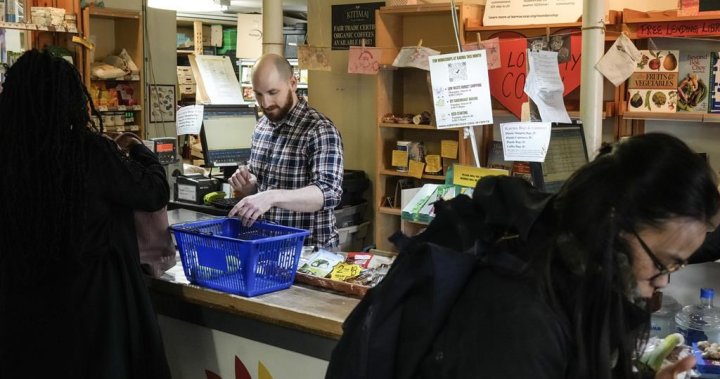The boycott of Loblaw stores in Canada has led to a boost in business for smaller grocers, co-ops, and other businesses. While the impact on Loblaw’s bottom line may not be significant, stores like Gateway Meat Market in Nova Scotia have seen longer lines and increased sales. Co-owner Tamara Selig mentioned how the boycott movement has brought attention to issues such as inflation and food insecurity, leading to customers feeling anger and frustration. The store operates on a low-profit margin, allowing them to offer competitive prices, such as organic strawberries for $0.97 a pound compared to the higher prices at Loblaw-owned stores.
Karma Co-op in Toronto is another grocery store that has benefited from the boycott. Manager Zacharie Weingarten noted that online discussions about the boycott have helped generate interest in their store. Karma is a nonprofit grocery store owned by its shoppers, with a focus on local, organic, fair trade, and zero-waste products. Weingarten emphasized the importance of community and connection with suppliers and farmers as a differentiator for Karma compared to conventional grocery stores.
Ian Pasloski, a Regina grower, highlighted the importance of knowing where food comes from and building a connection with the farmer. Pasloski started growing and selling micro greens from his home in Regina, with customers from all over the city seeking better quality and a connection to their food. The Loblaw boycott may not have a significant impact on the corporate giant, but small store owners and producers are encouraged by the signs that Canadians are willing to support local businesses and think outside the big box store when shopping for groceries.
While Loblaw stores may not feel a significant impact from the boycott, smaller businesses have reported increased sales and interest from customers. Gateway Meat Market in Nova Scotia has seen longer lines and higher sales, with customers attracted by their competitive prices. Karma Co-op in Toronto has also seen a boost, with online discussions about the boycott driving interest in their store. Both stores focus on local, organic, fair trade, and zero-waste products, as well as building connections with suppliers and farmers.
Karma Co-op, a nonprofit grocery store owned by its shoppers, emphasizes the importance of community and connection with suppliers as a way to differentiate from conventional grocery stores. Manager Zacharie Weingarten highlighted the role of online discussions in generating interest in the store. Ian Pasloski, a Regina grower, emphasized the importance of knowing where food comes from and building a connection with the farmer. The Loblaw boycott may not have a major impact on the corporate giant, but it has encouraged Canadians to support local businesses and think differently about their grocery shopping habits.













